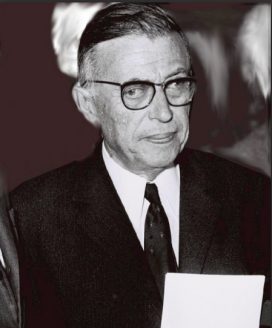Facts about Jean-Paul Sartre
Jean-Paul Sartre Biography
Jean-Paul Sartre was one of the most influential writers and thinkers of the 20th century. His name is nearly synonymous with existentialism, a branch of philosophy whose tenets include the idea that the essence of existence is founded in human experience and consciousness.
Sartre studied philosophy in the 1920s and then taught in Le Havre, Lyon, Paris and Berlin in the 1930s. He joined the French army when World War II began and was briefly imprisoned by the Germans in 1941. Upon his release he lived in occupied Paris, fighting with the resistance and working on his most famous philosophical work, Being and Nothingness (L être et le neant, 1943).
After the war he devoted his time to writing full-time and became famous for his philosophical essays and for his plays The Flies (Les mouches, 1943) and No Exit (Huis Clos, 1944). One of the leading intellectuals of France, he was a friend of Albert Camus (although they later split over political differences) and partner to feminist philosopher and writer Simone de Beauvoir (1908-86).
Sartre’s views have been described as atheistic, but philosophers have argued the finer points of this for half a century. Certainly his view was that the individual is preeminent, and as such full of anxiety over the freedom to choose. In his later years he was active in left-wing politics and wrote extensively about existentialism and Marxism. His other works include Nausea (La Nausée, 1938), Words (Les mots, 1964) and the unfinished Critique of Dialectical Reason (Critique de la raison dialectique).
Extra credit
Jean-Paul Sartre was awarded the Nobel Prize for literature in 1964, but refused it… He grew up under the supervision of his grandfather, Charles Schweitzer, an uncle of humanitarian Albert Schweitzer… One of his most famous quotes, underlining what some have described as his bleak view of life, is “Hell is other people.”

